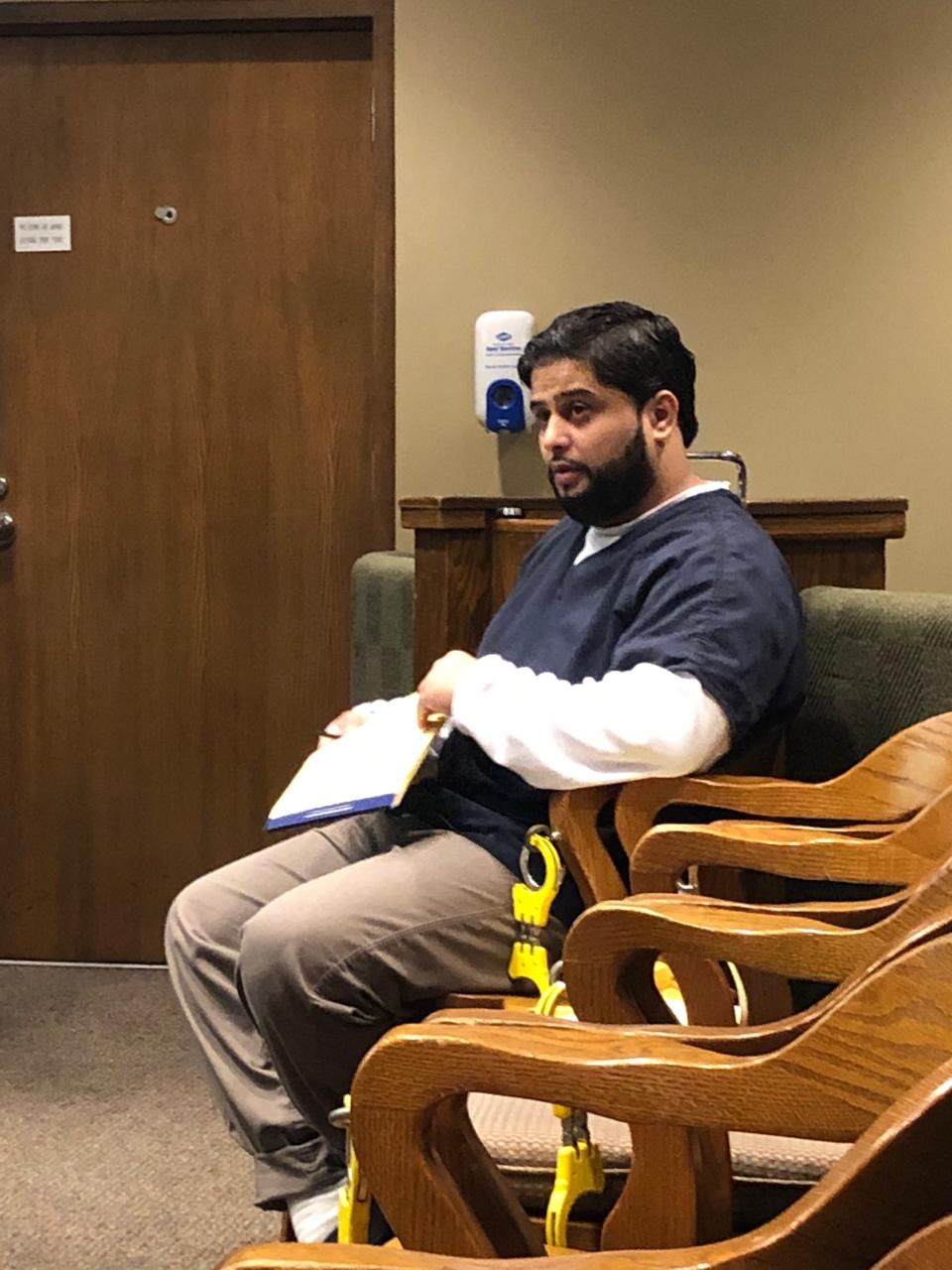Store clerk found guilty of murder for chasing, fatally shooting teen who stole $2 drink
MEMPHIS, Tenn. – Anwar Ghazali, a former convenience store employee accused of shooting and killing 17-year-old Dorian Harris on March 30, 2018, was found guilty of murder in the second degree by a jury today in a Shelby County criminal court.
Ghazali, 29, who did not testify during his trial, was expressionless after the verdict was read. He will be sentenced on September 23.
In Tennessee, second-degree murder is punishable by 15 to 60 years in prison.
Related Video: Suspect Killed in Tulsa Drug Store Shooting
Ghazali's defense said he never intended to kill Harris as he fled the Top Stop store in North Memphis after stealing an alcoholic beverage. Rather, Ghazali fired a weapon upward into the night air as Harris ran away. The rounds fired were meant to be warning shots, the defense said.
But Harris was struck by a bullet that severed his femoral artery, causing the teen to bleed out as he continued to flee through the surrounding neighborhood.
Harris' body was found behind an abandoned house nearby.
Ghazali, who did not alert police or emergency services after firing his gun, was 77 feet from Dorian Harris when he started to chase after him — a distance the defense said proved that Ghazali could not have intended to strike the teen.
"That's like Steph Curry standing on the other side of the court, and knowing that he'll make a shot at a 94 foot distance. Even Steph Curry can't guarantee that," said criminal defense attorney Blake Ballin.

Shelby County Medical Examiner Marco Ross testified that — while it would have been extremely unlikely — the trajectory of the bullet, which was parallel to the ground, that entered Harris' back left thigh could have occurred from a falling bullet as the defense claimed.
The jury also found it unlikely.
'Completely inappropriate': A black man was looking for parking. A white woman felt threatened and called the cops
Defense questions use of 'deadly force'
The prosecution drew heavily on basic facts verified by video evidence and witness testimony.
Surveillance video showed the teenager entering the Top Stop, head straight for a cooler in the store, grab an alcoholic beverage, turn around and exit the store. The time that Harris was in the store totaled about seven seconds.
Ghazali looked up when he heard the teenager slam the cooler door shut and exit Top Stop. Surveillance footage showed Ghazali following Harris out of the store, looking for him briefly before pursuing Harris.
Prosecutors said after firing his weapon, Ghazali calmly walked back inside Top Stop, and continued ringing up customers.
At least one witness told police that Ghazali said, "I think I shot him," according to state prosecutors. Ghazali never reported the shooting or the theft, police said.
"The defendant took it upon himself to be the judge, the jury and the executioner over a $2 [drink]. That's why we're here," said state prosecutor Lora Fowler during closing arguments. "Why are you using deadly force to defend a [drink]?"
Harris' death triggered two days of protests as friends, family and neighbors demonstrated at a house across the street from Top Stop. The store was closed for two weeks after Harris' death, according to Matt Porter, a lawyer representing Harris' family in a civil suit against the store's owner.
During the trial, Harris' grandmother, Effie Fitch, sat in the front row flanked by other relatives and friends of Harris, gently rocking and clasping her hands while attorneys sparred over the question of Ghazali's intent.
Fitch initially said she could not comment about the case, because of the pending civil suit.
But after exiting the courtroom, Fitch paused and told media she was pleased with the verdict, but not the charge.
"I feel that the charge should have been first degree," Fitch said. "He took a life, so it should be for life."
At least a dozen of Ghazali's relatives and friends were in attendance.
After the trial, Ballin said that while he hoped the jury would view Ghazali's actions as reckless rather than intentional, he respected their decision. Ballin added the second degree murder charge was preferable to the punishment attached to a first degree murder charge.
"Anytime you have a client that's facing life in prison, and you avoid that, that's a win," said defense attorney Blake Ballin.
Ghazali's family declined to comment.
Follow Micaela Watts on Twitter: @megawatts2000.
This article originally appeared on Memphis Commercial Appeal: Tennessee store clerk found guilty of murdering teen who stole a drink

